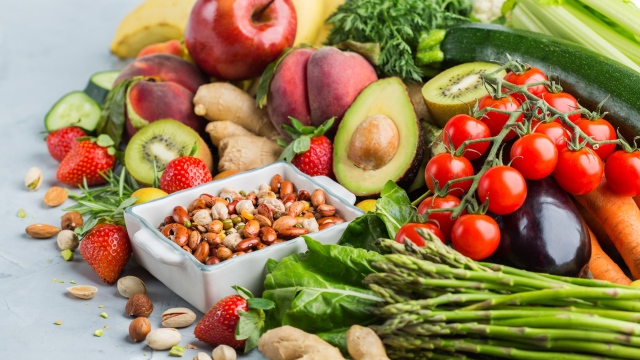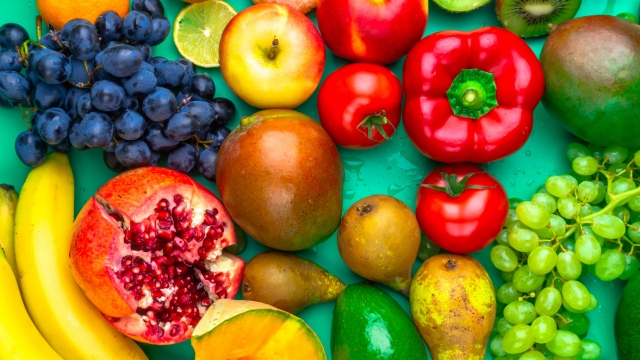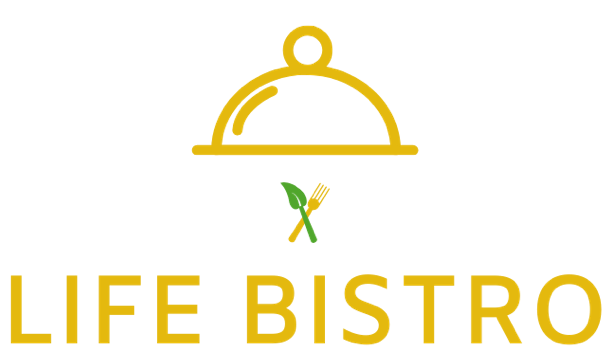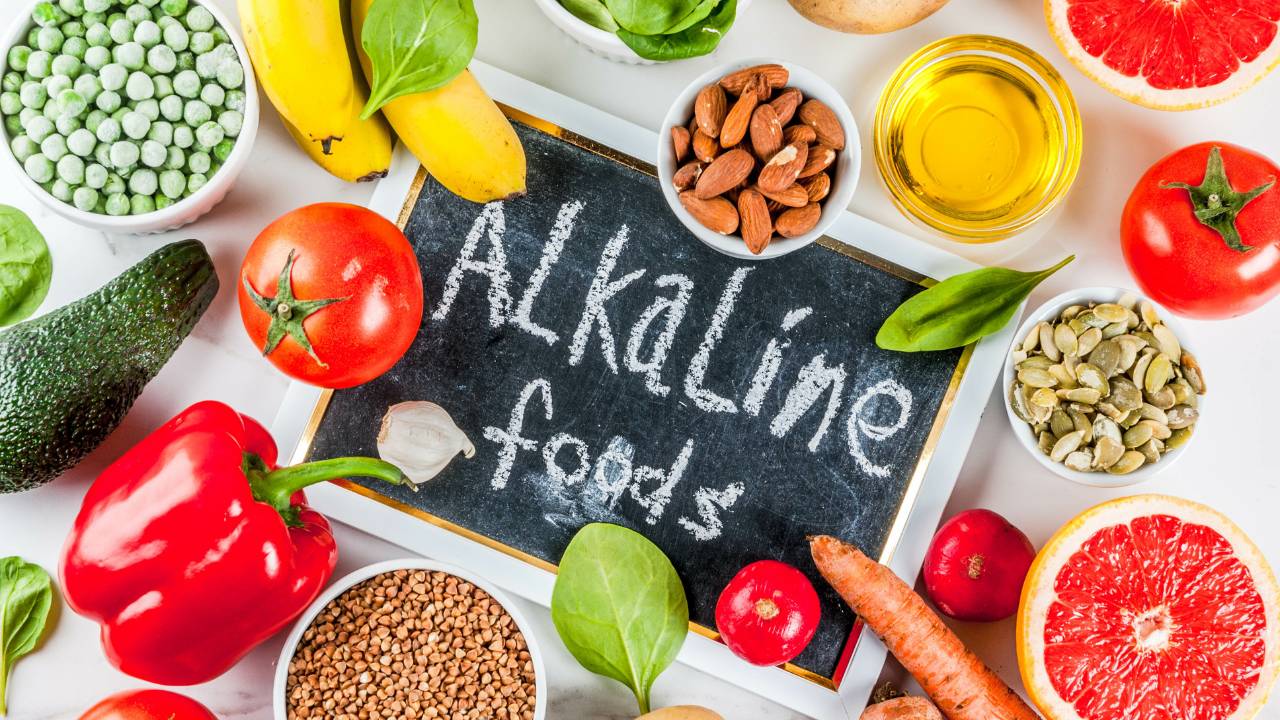Imagine a lifestyle that not only supports your health but also the environment, a lifestyle that combines the principles of veganism and alkalinity to create a unique and transformative approach to wellness. Enter an alkaline vegan diet.
But what is an alkaline vegan diet? It encourages eating more vegetables, fruits, nuts, legumes, and other alkaline-forming foods while avoiding acidic-forming foods such as meat, dairy, eggs, grains, and alcohol and limiting neutral foods, such as starches, sugars, and natural fats.
Are you intrigued by the idea of a diet that can potentially improve your overall health, boost your energy levels, and ward off chronic diseases? If so, this comprehensive guide will take you through the science, benefits, and practical tips for adopting an alkaline vegan lifestyle.
Key Takeaways
- The Alkaline Vegan Diet combines veganism and alkalinity to promote optimal health.
- It is based on the acid-ash hypothesis, which suggests that food choices can influence body pH balance.
- The diet encourages the consumption of alkaline foods while limiting or avoiding acid-forming ones for overall health benefits and holistic wellness practices.

Introduction – What Is Alkaline Vegan
The alkaline vegan diet is an innovative fusion of two health-promoting dietary principles: veganism and alkalinity. On one hand, veganism is a plant-based diet that abstains from animal products or by-products, while alkalinity focuses on consuming foods that help maintain the body’s pH balance.
By combining these principles, the alkaline vegan diet aims to achieve a boost in optimal health, reduce inflammation, sharpen mental clarity, and fortify the immune system.
The scientific rationale behind the diet is based on the notion that a slightly acidic pH balance is crucial for good health, and thus, the diet helps sustain this balance by providing essential nutrients and minerals.
Incorporating an alkaline vegan lifestyle practically necessitates consuming alkaline-forming foods such as fruits, vegetables, nuts, and seeds while concurrently shunning acidic foods like processed foods, dairy, and animal products.
Historical Origins and Philosophical Basis
The concept of alkaline veganism traces its roots back to the twentieth century when alkaline diets were first introduced as dietary therapy. Its philosophical foundation is deeply rooted in holistic health movements and global health practices.
One notable figure in its progression is Dr. Sebi, a black Honduran healer and herbalist who promoted the diet as a means to achieve optimal health and well-being.
Scientific Basis of Alkaline Veganism
The alkaline vegan diet is based on the acid-ash hypothesis, which posits that the foods we consume can impact our body’s pH balance. Notably, the human body requires a closely monitored blood pH level, ranging from 7.34 to 7.45, to maintain optimal health.
It’s important to note that this diet delineates between the alkaline load and the acid load of the foods we consume, with the goal of maintaining a balanced pH level by eating more alkaline-forming foods and avoiding acidic foods.
However, it’s worth noting that not all claims made by various alkaline diet enthusiasts have been substantiated by scientific research, and many of the diet’s touted benefits remain under scrutiny.

Core Principles of an Alkaline Vegan Diet
At its core, the alkaline vegan diet emphasizes consuming alkaline-forming foods while avoiding acid-forming foods to maintain the body’s pH balance. This approach is believed to help reduce obesity and inflammation and promote overall health.
This section will delve into the foods to embrace and avoid in an alkaline vegan diet, along with the nutritional considerations and challenges tied to this lifestyle.
Foods to Embrace
To fully harness the benefits of an alkaline vegan diet, it’s imperative to consume a wide variety of alkaline-promoting plant-based foods.
By incorporating these foods into your vegan diet, you can enjoy fruits like lemons, tomatoes, and limes, leafy greens like spinach and kale, and other green vegetables like broccoli, cauliflower, and Brussels sprouts.
Likewise, nuts like peanuts, almonds, pecans, and pistachios, seeds such as chia and flax seeds, and legumes like kidney beans and peas can be included.
Consuming these nutrient-rich healthy foods, or alternatively, eating foods that are packed with vital vitamins, minerals, and antioxidants, helps sustain a balanced pH and bolsters overall health.
Foods to Avoid
While the alkaline vegan diet focuses on consuming alkaline-forming foods, it’s equally important to avoid foods with acidic properties or those that may cause acidity in the body. For instance, lentils and some grains are known to be acid-forming and should be limited or avoided. Consuming acidic foods can result in increased acidity in the body, which may lead to potential health issues.
Moreover, the American Heart Association suggests replacing saturated fats, commonly found in animal products, with unsaturated fats to promote heart health; the Dietary Guidelines for Americans recommend that saturated fat intake should not exceed 10% of total calories. Eschewing these acidic foods allows you to augment further the potential health benefits of an alkaline vegan diet.
Nutritional Considerations and Challenges
Adopting an alkaline vegan diet may present some nutritional challenges and risks, such as potential nutrient deficiencies and disordered eating habits. Key nutrients that may be lacking include vitamin B12, vitamin D, iron, zinc, and calcium.
This section will examine strategies for meeting nutritional needs and overcoming dietary challenges linked with an alkaline vegan diet.
Meeting Nutritional Needs
Ensuring balanced nutrient intake is crucial for maintaining optimal health on an alkaline vegan diet. To achieve this, some strategies to consider include supplementing with Vitamin B12, obtaining Vitamin D through sun exposure or fortified foods, consuming iron-rich foods with Vitamin C-rich foods to enhance absorption, obtaining zinc from legumes, whole grains, nuts, and seeds, and obtaining calcium from leafy greens, tofu, fortified plant-based milk, and calcium-set tofu.
Moreover, as each individual’s nutritional needs may vary, it’s highly recommended to consult with a healthcare professional or registered dietitian to ensure proper nutrient intake and address any specific concerns.
Overcoming Dietary Challenges
Practical tips for overcoming dietary challenges on an alkaline vegan diet include thorough meal planning, mindful social dining, and managing diverse dietary needs for athletes and seniors. Firstly, when meal planning, research recipes on websites such as Pinterest, Beauty Bites, Alkaline Meal Ideas eBook, Vegan Calm, Alkaline Vegan Girls, and Sunny Payne’s 3-Day Alkaline Vegan Meal Planning Guide.
Additionally, when dining out, choose eateries that cater to plant-based diets and emphasize alkaline foods, drink water with lemon or lime, add raw fruits and vegetables to meals, and consider opting for meatless meals.
For athletes, ensuring adequate protein intake can be achieved by consuming plant-based protein sources such as legumes, tofu, tempeh, quinoa, and hemp seeds. Similarly, seniors can prioritize nutrient-dense alkaline foods, such as dark leafy greens, nuts, seeds, and legumes, to ensure their dietary needs are met.

Health Benefits and Scientific Controversies
The alkaline vegan diet has been associated with numerous health benefits. However, there are also scientific controversies and misconceptions surrounding the diet.
In this section, we will delve deeper into the health benefits and scientific controversies associated with the alkaline vegan diet.
Documented Health Benefits
Research indicates that an alkaline vegan diet can provide several health benefits. For example, it may help protect against heart disease, high blood pressure, and stroke by promoting a healthy eating pattern rich in whole grains, fruits, vegetables, and plant-based proteins.
Additionally, the diet may help reduce the risk of inflammatory diseases like cancer and osteoporosis by promoting an alkaline environment in the body and minimizing acid load.
Addressing Criticisms and Misconceptions
While the alkaline vegan diet has numerous potential health benefits, addressing criticisms and misconceptions surrounding it is essential. Some critics argue that the diet lacks scientific evidence and may lead to avoiding nutritious foods like meat, fish, eggs, and dairy.
However, it’s essential to emphasize that its main focus is on consuming nutrient-dense, alkaline-forming plant-based foods to maintain a balanced pH level in the body.
Therefore, clarity on misconceptions and comprehension of the scientific truths behind this diet enables us to make informed decisions on adopting this lifestyle for enhanced health and well-being.
Also Read: Is Cocktail Sauce Gluten-Free? Safe Brands For Everyday Use
Practical Implementation of an Alkaline Vegan Lifestyle
Transitioning to an alkaline vegan lifestyle involves dietary changes and the integration of holistic wellness practices and herbal remedies. Furthermore, this section will uncover practical tips for initiating an alkaline vegan diet, integrating holistic wellness practices and herbal remedies, and mapping out satisfying and diverse meals.
Starting an Alkaline Vegan Diet
To begin your journey towards an alkaline vegan lifestyle, initially, it’s essential to equip your kitchen with essential tools like pots, stone or clay baking sheets, a water nano filter, a water ionizer, and a well-rounded meal plan comprising fresh vegetables, fruits, and unrefined plant-based sources of protein.
Subsequently, start by gradually incorporating more alkaline-forming foods into your diet and reducing processed and refined foods.
Moreover, prioritize hydration and consider adding greens to your meals, as they are cleansing and detoxifying.
Holistic Wellness and Herbal Remedies
In addition to dietary changes, integrating herbal healing practices can benefit the alkaline vegan lifestyle. Some herbal remedies that can help maintain pH levels in the body, decrease inflammation, aid in detoxification, and strengthen the immune system include dandelion greens, kale, mushrooms (excluding shitake), and olives.
These natural remedies can complement the alkaline vegan diet by providing additional nutrients, antioxidants, and healing properties.
Meal Planning and Recipes
Planning diverse and satisfying alkaline vegan meals is vital to maintaining a healthy eating pattern and enjoying the lifestyle. Firstly, research related recipes on websites such as Pinterest, herb shops, and recipe blogs, and consider investing in a 28-day alkaline vegan meal plan or a personalized alkaline meal plan tailored to your objectives and conditions.
Moreover, when dining out, choose eateries that cater to plant-based diets and emphasize alkaline foods to maintain your commitment to the lifestyle.
Beyond Diet: The Alkaline Vegan Lifestyle
The alkaline vegan lifestyle goes beyond diet to incorporate holistic health practices and community support systems. Moreover, engaging in regular physical activity, practicing stress management techniques, and getting sufficient rest and sleep are essential aspects of a balanced lifestyle.
Furthermore, connecting with like-minded individuals through online communities, local meetups, and health professionals can provide valuable support and encouragement on your journey.

The Future of Alkaline Veganism
As interest in plant-based diets continues to grow, the popularity and adoption of the alkaline vegan diet will also increase in the coming years. Notably, ongoing research and emerging trends, such as developing vegetable meat alternatives and the growing interest in alkaline-forming foods, suggest a promising future.
Moreover, the global plant-based meat market is projected to reach USD 24.80 billion by 2030, indicating a rising interest among health-conscious consumers. Subsequently, as research continues and awareness about the potential health benefits grows, it’s possible that this lifestyle will become increasingly prevalent and influential in the world of nutrition and health.
Also Read: How is Vegan Meat Made? Unveiling the Fascinating Process Behind Plant-Based Delights
Final Thoughts
The alkaline vegan diet presents a unique wellness approach by melding the principles of veganism and alkalinity to foster a balanced pH and overall health. The consumption of nutrient-rich, unprocessed plant-based foods can lead to numerous health benefits, such as improved digestion, reduced inflammation, and a stronger immune system.
Related Questions
Still have questions? Check out a couple of common ones below.
What are alkaline plant foods?
Alkaline plant foods are mostly fruits and vegetables, soybeans, tofu, some nuts, seeds, and legumes, which promote an alkaline diet and are acceptable for consumption.
Which celebrities are alkaline vegan?
Gwyneth Paltrow, Jennifer Aniston, Kirsten Dunst, Victoria Beckham, and Jared Leto are some of the celebrities who follow an alkaline vegan diet.
Are eggs alkaline?
Eggs can be part of an alkaline diet, as their pH neutrality is slightly acidic. Egg whites are one of the few food products that are naturally alkaline, with increasing alkalinity as the egg ages, reaching a pH of 9.2.
What foods should I include in an alkaline vegan diet?
Incorporate fruits, vegetables, nuts, seeds, and legumes into your diet to create a balanced, alkaline vegan diet.


